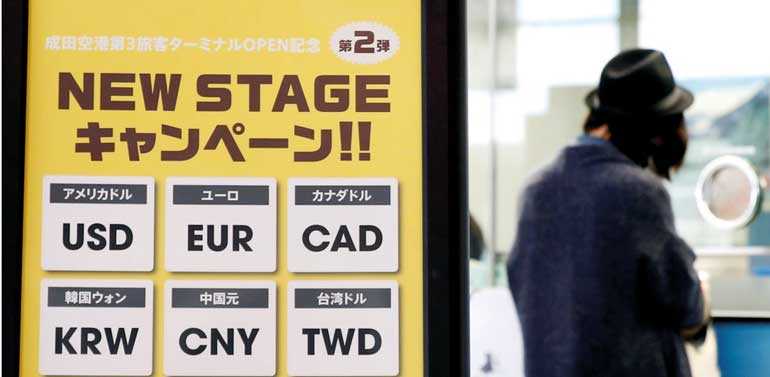Sunday Feb 22, 2026
Sunday Feb 22, 2026
Monday, 30 September 2019 00:00 - - {{hitsCtrl.values.hits}}

Reuters: Investors scaled back short positions on currencies of trade-reliant Asian economies over the past two weeks, a Reuters poll showed, as optimism grew that the United States and China would clinch a trade deal at some level.
They also turned bullish on the Taiwan dollar for the first time since April last year, a poll of 14 respondents showed.
US President Donald Trump said on Wednesday a deal to end the nearly 15-month trade war could happen sooner than people think. However, his comments came after the close of the poll.
Trump’s comments come at a time when optimism has been growing that a deal may be reached due to ongoing trade talks and political considerations ahead of elections next year in the United States.
Short bets on the Chinese yuan, the South Korean won and the Singapore dollar declined for the second time in a month, but the unpredictable nature of the last 15 months has kept market participants slightly apprehensive. “Knowing the history of the talks between the two giants, the market is also prudent not to get carried away with the odds of a trade deal,” said Mahesh Sethuraman, deputy head of global sales trading at Saxo Capital Markets.
Just this week Trump levelled sharp criticism of China’s trade practices and said he would not accept a “bad” trade deal.
Disruptions caused by the trade war have seen a growing need for supply chain diversification, driving more business toward Taiwan, whose hi-tech factories are suppliers for global tech giants such as Apple and Qualcomm.
Last week, the island raised its 2019 growth forecast to 2.4% from 2.06%.
Investors cut their bearish bets on the Indian rupee for a second time this month, as the government unveiled a series of measures to reinvigorate the economy.
Last week, India lowered its corporate taxes in a surprise move to woo manufacturers and boost investment in Asia’s third-largest economy, where unemployment has surged as growth sinks to a six-year low.
Investors raised their long bets on the Thai baht, the only other emerging Asian currency where they were bullish, even as the country struggles with shrinking exports and below-target inflation. The central bank has expressed concern about the strength of the baht, which has gained nearly 6.5% against the US dollar – making it Asia’s best performing currency so far this year.
Short positions on the Philippine pesos were marginally reduced. Later in the day, the central bank is expected to cut interest rates for a third time this year.
The Asian currency positioning poll is focused on what analysts and fund managers believe are the current market positions in nine Asian emerging market currencies: the Chinese yuan, South Korean won, Singapore dollar, Indonesian rupiah, Taiwan dollar, Indian rupee, Philippine peso, Malaysian ringgit and the Thai baht.
The poll uses estimates of net long or short positions on a scale of minus 3 to plus 3. A score of plus 3 indicates the market is significantly long US dollars. The figures include positions held through non-deliverable forwards (NDFs).